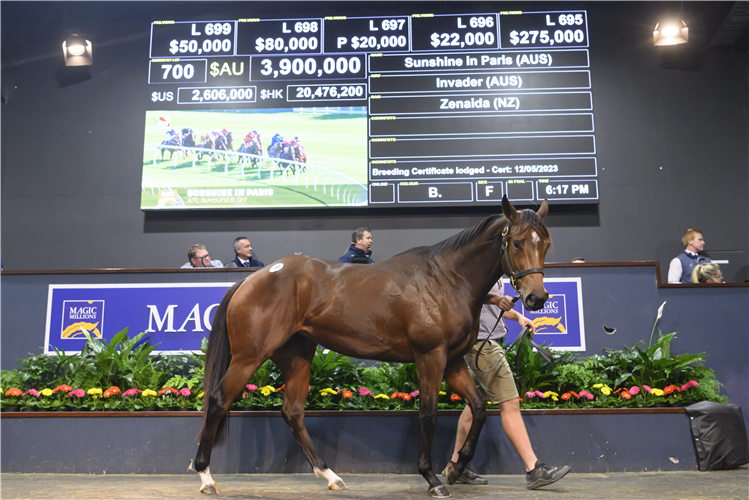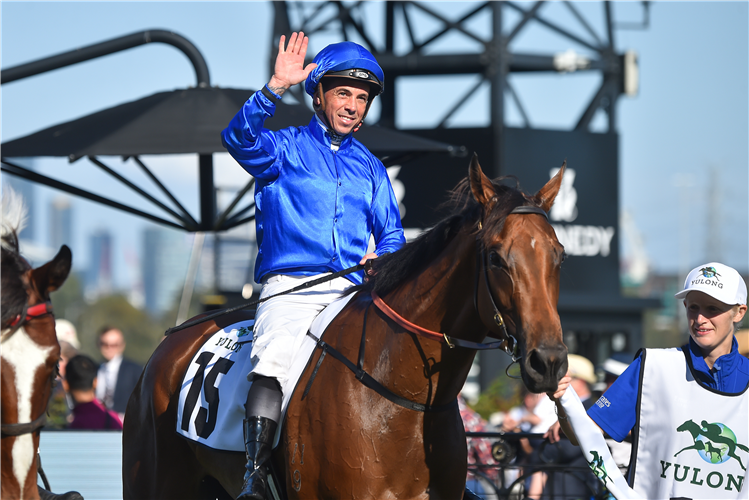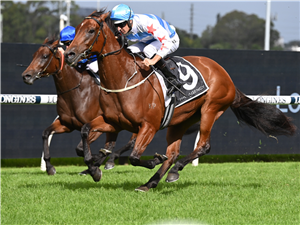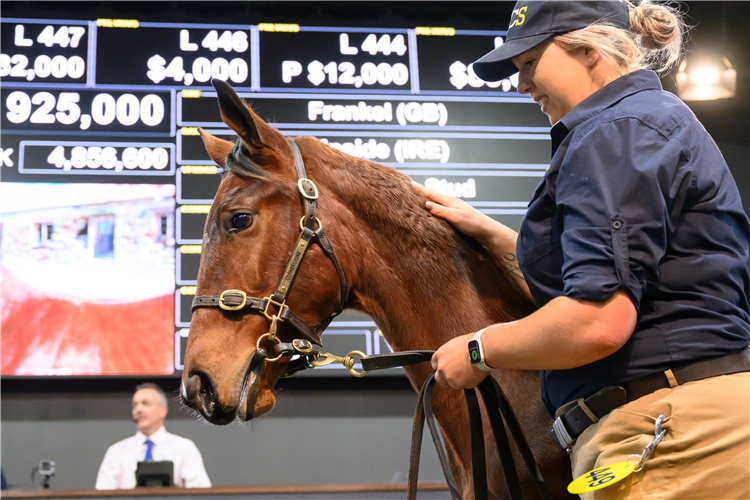Trainer of three-time placegetter Prince Of Arran sees ‘no logic’ behind new measures
Trainer Charlie Fellowes believes the new stringent criteria set out by Racing Victoria on Wednesday will make it nearly impossible for overseas horses to compete in the Melbourne Cup (Gr 1, 3200m).
A series of new measures are to be brought in to combat the rate of injuries and fatalities mainly to overseas contenders.
The number of international horses permitted at the Werribee International Quarantine Centre will be limited to 24 – down from 42 in 2018 – and those horses will be allowed just one run in Australia before their Cup challenge.
They will also have to undergo a series of tests before travelling, at their owners’ expense, have tests once they arrive in Australia and comply with pre-race checks while in quarantine.
Fellowes has made the annual pilgrimage to Australia with his globe-trotting superstar Prince Of Arran (Shirocco) for the past three years, with the gelding placing in the Melbourne Cup on three consecutive occasions as well as winning the ballot-exempt Hotham Handicap (Gr 3, 2400m) on Derby Day in 2018 and the Geelong Cup (Gr 3, 2400m) in 2019.
While the Newmarket-based trainer understands that changes had to be made, given the scrutiny it has come under in the past few years, but he told Racing & Sports Bloodstock struggled to understand the logic behind the 41 recommendations that will come into place for this year’s Melbourne Cup.
“There is just so much in this report I think that defies any logic,” said Fellowes. “The cap on the number of horses allowed to travel down to Australia, for example, I don’t see the logic behind this decision. Why do they think that 24 horses is better than 40 horses going out there? I don’t see how this will make any difference.
“But my main concern is with the recommendation that any horse that has suffered a stress fracture of any kind in the past is now not allowed to run in the Melbourne Cup - that is the most ludicrous statement of the whole report in my opinion.
“I have three horses at the moment recovering from stress fractures, we see them all the time. They are inconsequential and they will have absolutely no bearing on a horse's future soundness.
“Prince Of Arran could have easily done a stress fracture early on his career, but with these new rulings if he had had a fracture as a young horse, he is now not allowed to run? That’s madness.”
Fellowes’ one main fear behind the new changes are the BHA’s response to these changes and if a horse is denied entry into Australia due to failing the CT scans, will that affect their future racing in Britain.
“What worries me is how are the BHA going to respond to these rulings? If I enter Prince Of Arran in the Cup and he doesn’t pass the MRI and CT scans and isn’t allowed to race in Australia. What happens back in England with the horse? Will the BHA reciprocate the ban in England or are they going to allow him to race up here?
“It’s one question that needs answering and I don’t think anyone would enter if they knew they were going to risk having a horse banned from racing at home. I think you would have to be very brave to enter if that is the case.
“I think realistically you can’t plan around running in a Melbourne Cup anymore. It will be so interesting to see how this plays out in Europe. It will be interesting to see how many people enter their horses in the race and it will depend on what the BHA do and how many horses pass.”
With the international fatalities over the past years, Werribee has often come under scrutiny with many believing it is not good enough to house the international contingent ahead of them running at the spring carnival and Fellowes believes many of the injuries suffered by the international runners can be linked back to Werribee.
“One thing they have ignored in this whole thing is Werribee, which I believe to be the major part of the problem,” said Fellowes. “We travel all around the world and everywhere we go, we are provided with world-class facilities and Weribee is not a world-class facility.
“There has to be an issue with Werribee, too many horses break down there and it is just not good enough and this report has completely ignored that. I think Werribee should have been looked at first in my opinion.
“The sand track is poor and I don’t think the turf track is that good either. I am so lucky because I have had a sound horse who has handled it, but it is not world class.
“People always blame the inability for horses to adapt to the different training techniques they have in Australia, with the flat, round, quick tracks - that’s not true. We go to Dubai every year for just as long as we are out in Australia and we train on flat, very quick tracks in a completely different way to how you would train in the UK and we never have the problems that we have in Werribee.”
While Fellowes believes the review was predominantly conducted to make the race safer, he does feel the findings have also helped appease the many Australian trainers who have voiced their opinions about the negative affect the European dominance has had on the time-honoured race.
“I think there is absolutely no doubt that there is a movement, especially amongst trainers, who are sick of internationals coming down and cleaning up in some of the races during the spring carnival. This to me is so short-sighted,” he said.
“At Royal Ascot over the years we have the Australian sprinters who come up here and kick us into touch and we welcome it at Royal Ascot, we want it to be a meeting where the best horses from around the world compete. Wesley Ward always brings his best two-year-olds over and they kill us, but when we do beat them it’s amazing.
“Nothing is unbeatable and Vow And Declare showed us that a couple of years ago. The euphoria when that horse won was incredible, the racegoers, commentators and everyone on course went mad - why? Because it was an Australian winner and it was special, but we shouldn’t be restricting that, we should be embracing the competition and that’s what makes these races so amazing.
“There are people that claim European winners are a detriment to the race and I just can’t get my head around that sort of attitude. I think the international runners only add to the allure of what I rate as one of the best races in the world.”




